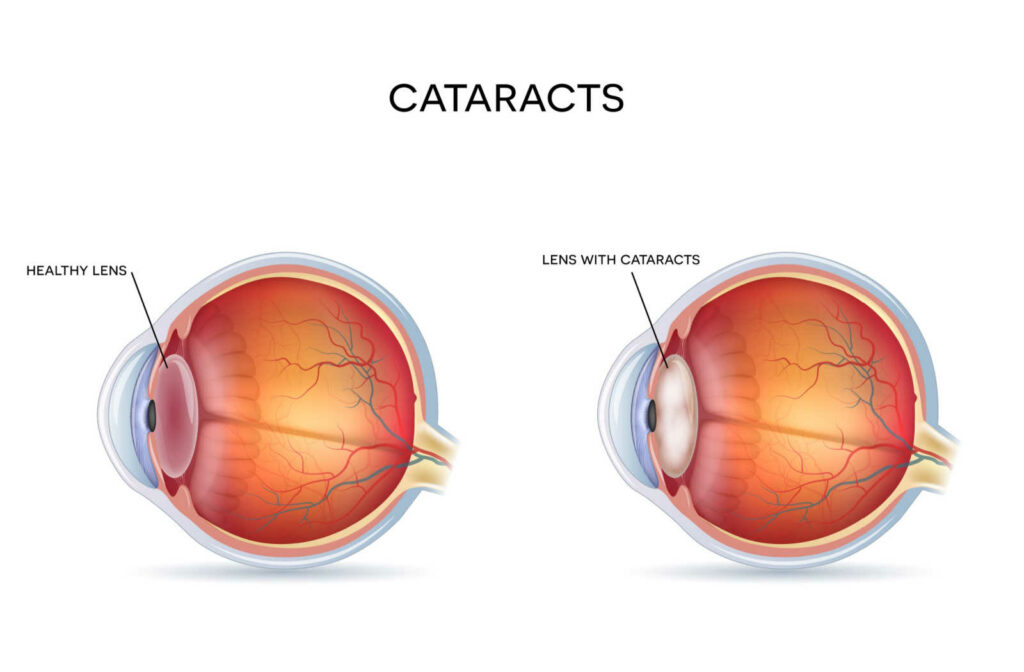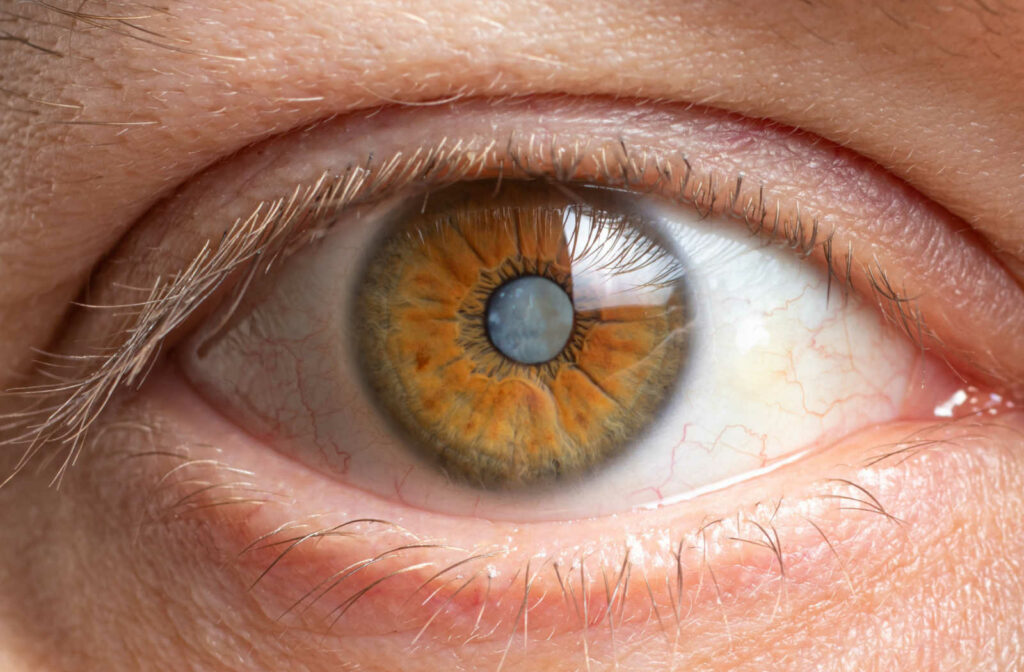It’s pretty common for your vision to change as you age, but when is a change in prescription a natural part of life or a sign of something more significant developing? When it comes to cataracts, the answer can sometimes be both.
Cataracts are common in older adults, but they can significantly affect your vision quality over time. In some cases, cataracts could cause blindness and affect your quality of life. But just how common are cataracts, what’s your risk of developing them, and what can you do to preserve your vision from cataracts as you get older?
Of course, managing an eye condition like cataracts will require a little bit of help. If you’re concerned about how cataracts can impair your vision as you grow older, contact the CHROMA modern Eyewear Eyecare team today to see how our Doctors can help support your sight throughout your life.
It all starts when you book an appointment, so schedule your eye exam with CHROMA today!
What Are Cataracts & Does Everyone Get Them?
So let’s go ahead and answer the million-dollar question: technically on a long enough time horizon everyone does develop cataracts. Having said that, not everyone develops them during their lives as the speed of progression varies amongst individuals. Regardless, a significant number of people do, and according to the National Eye Institute, over half of Americans over 80 have cataracts or had treatment to remove cataracts.
Cataracts are an eye condition that typically develops with age. As you grow older, proteins in your eye’s crystalline lens start to break apart and clump together, causing the lens to become more rigid. As this process happens, your crystalline lens develops a hazy, milky, foggy appearance that also obstructs your vision.
Cataracts progress over time and, in some cases, can lead to blindness. There are a few different types of cataracts you could develop, like:
- Nuclear cataracts, which develop at the center of the lens.
- Posterior cataracts, which develop as wedge-like shapes around the center of the lens.
- Cortical cataracts, which develop at the back of your lens.
- Congenital cataracts, which can develop at birth.
- Secondary cataracts, which can develop as a result of medications or eye disease.
- Traumatic cataracts, which can develop after sustaining an eye injury.
As cataracts develop, you may experience several symptoms, including:
- Blurry vision
- Light sensitivity
- Faded color vision
- Halos around light sources
- Double vision
- Frequently changing lens prescriptions
- Poor night vision

What Is Your Risk?
Cataracts generally develop with age, but some factors could increase your risk of developing cataracts earlier in life. Some of these factors include:
- Having diabetes
- Smoking
- Excessive alcohol consumption
- Excessive exposure to sunlight
- Nutritional deficiency
- Family history
If you believe you might be developing cataracts, we can perform a comprehensive eye exam to determine the quality of your vision and look at the health of your eyes. With the help of several diagnostic tools and techniques, we can determine if you have cataracts and if it may lead to further vision problems in the future.
However, cataracts could start developing without causing noticeable symptoms. Please remember to visit us for eye exams regularly.
Preventing, Managing, & Treating Cataracts
Cataracts are quite common in older adults, but there are several different strategies you could use to help preserve your vision quality as you grow older.
Of course, we always recommend speaking with our eye care team for advice unique to your needs. From a comprehensive eye exam, we can help determine what may be contributing to your cataract development and create a personalized treatment or management plan. Some of the most common strategies we may recommend include:
Healthy Lifestyle Choices
Making healthy lifestyle choices can go a long way in managing your risk of developing cataracts. Some of our most common tips include:
- Annual eye examination.
- Wearing prescription or non-prescription sunglasses with UV protection when exposed to sunlight.
- Reducing your alcohol and tobacco use.
- Consuming eye-friendly nutrients like vitamin E, C, zinc, lutein, and zeaxanthin.
Updating Your Lens Prescription
If your symptoms are minor, updating your lens prescription may be enough to help you see as clearly as possible while living with cataracts. In some cases, we may recommend specialty lenses or even contact lenses.
Cataract Surgery
The only way to treat cataracts is to have cataract surgery. This procedure removes the cataract lens from your eye and replaces it with an artificial intraocular lens to help you achieve clear vision.
Before we can recommend this procedure, we must examine your eyes and determine if you’re a candidate. If you can have the surgery safely, our Doctors and staff will help guide you step by step through the process to ensure the best visual outcome and most positive experience possible.
Preserve Your Vision
Whether you have relatively clear vision or regularly struggle with sight, our CHROMA modern Eyewear Eyecare team is always ready to help.
Find out how we can help preserve your vision from issues like cataracts, and schedule an appointment today!



